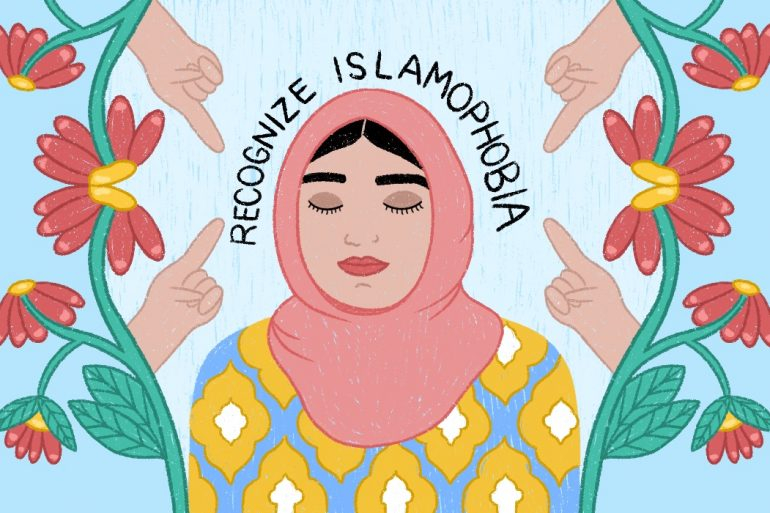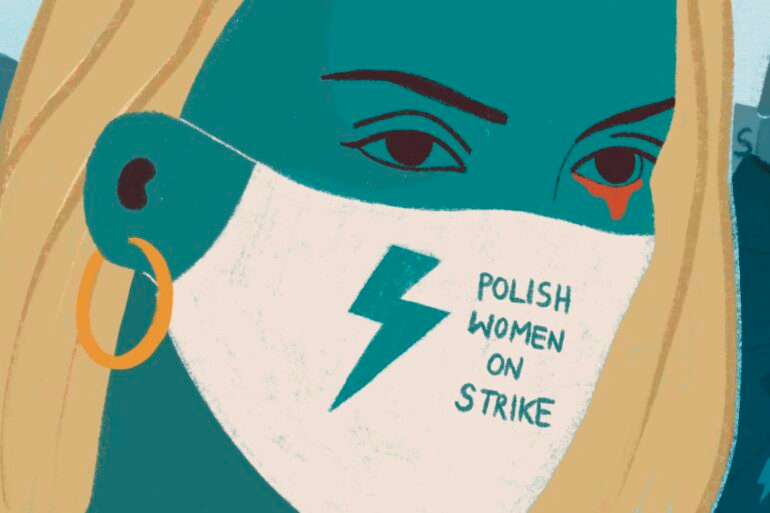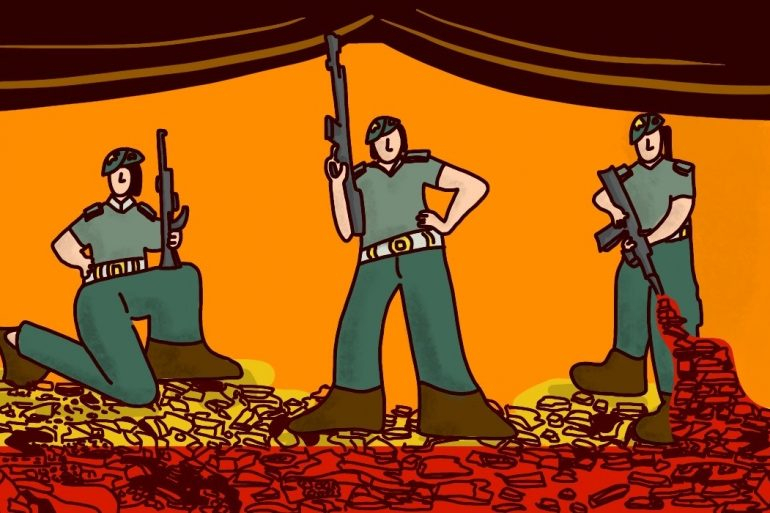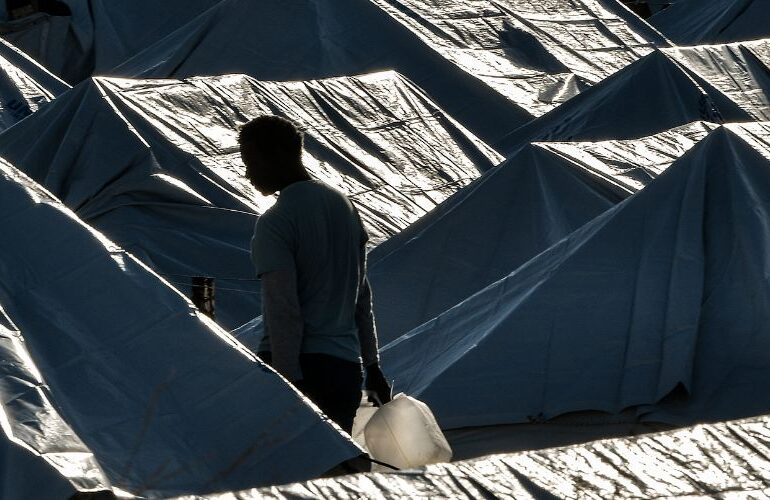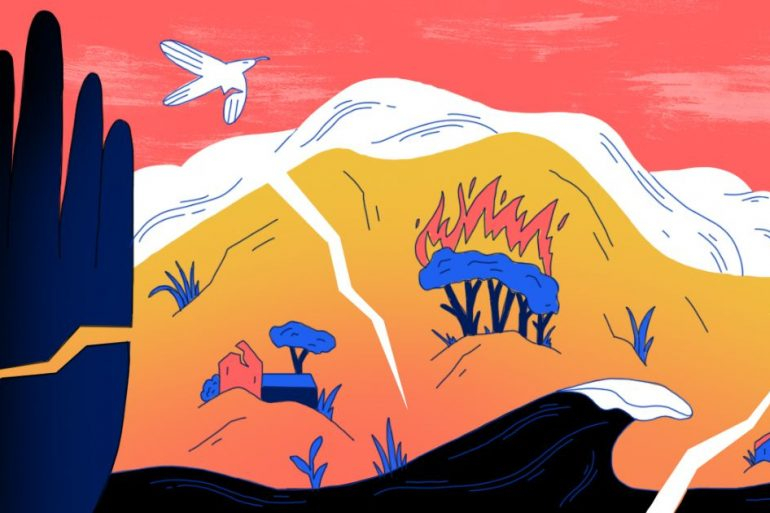Growing up in West Belfast, I’ve developed an acute awareness of the power of community organising, and how empowering that is as a woman. My activism is rooted in working-class struggle and in the solidarity of fighting for causes across the globe.
When I came to Lebanon shortly after the Beirut port explosion in 2020 I met Lucy Turay – a Sierra Leonean activist, former migrant domestic worker in Lebanon and founder of Domestic Workers Advocacy Network (DoWAN) and right away, we clicked.
I was already aware that the Kafala [sponsorship] system, an oppressive institution that controls migrant workers in parts of South West Asia, existed and of the daily struggles endured by migrant domestic workers. What meeting Lucy made me realise however, was the extent of abuse that migrant workers experience in Lebanon: from blatant racism to human rights violations.
Lucy’s struggle, comradeship and solidarity motivated me to get involved with Domestic Workers Advocacy Network (DoWAN). I have not had the lived experience of the Kafala system – however, the global working-class struggle for freedom, and all causes fighting against this injustice, deserve solidarity and need allies in the movement.
It was at this point where we built a coalition of comradeship and began to organise together in mutual solidarity. We had the shared vision to support the migrant community and identify community leaders to build their own response to the extreme inequality that migrant domestic workers in Lebanon were facing.
In conversations we had while organising together, Lucy told me that she was promised a bright future in Lebanon, but unfortunately, she found out very quickly this was not the case.
What is driving people to the SWA region ?
The Sierra Leonean Government falls short in providing any introductory provisions to its citizens such as: electricity, water, healthcare, education, housing, or any social services.
Compounded by severe socio-economic instability, many women are left with no choice but to go and seek work elsewhere in places like Lebanon. The government continues to turn a blind eye to the severe trafficking issue in their country, most recently lifting the ban on women travelling to Lebanon, serving racial capitalism and in turn refusing to acknowledge the enormous systemic issue of deprivation in Sierra Leone.
However, once they arrive, they often fare no better. Once employed within the Kafala system as indentured domestic servants, they face multiple human rights abuses.
The Kafala system
Like many women from Africa and South Asia, Lucy found herself in the Kafala system. Along with Oman, Lebanon remains the only country in South West Asia without labour laws governing or protecting domestic workers.
Despite the Kafala system violating several international human rights laws, governments have so far continued to turn a blind eye to the exploitation of workers within it. Under Lebanese law, Kafala is both a legal employment framework and a hostile immigration system that ties workers’ legal status to their employer.
Official figures suggest there are approximately 250,000 registered domestic workers in Lebanon; however, this is a conservative estimate and does not include undocumented workers.
While the atrocities of Lebanon’s corrupt political regime are numerous, the treatment of domestic workers bound to the Kafala system is particularly horrific – and its primary target in Lebanon is women and children.
The Kafala system relies on the recruitment and exploitation of non-native workers who are subjected to conditions that can best be described as slavery as they work in the households of the Lebanese middle and upper classes.
Discrimination against these workers is often based on their nationality and skin colour. Employers, authorities and agents are complicit in breaching human rights daily as there are no labour laws in place to protect the most basic rights of migrant domestic workers.
Treated as a commodity, domestic workers have their passports confiscated by employers; they work endless hours, are underpaid and often their wages are withheld. Trapped in their employers’ homes, they endure racism, torture, mental, physical and sexual abuse. The Directorate of General Security (2017) states that two domestic workers die per week in Lebanon.
Many migrants are unpaid, some are made destitute by employers, and others take significant risks to flee the inhumane conditions of which they are kept. These migrant workers are at risk of homelessness or being detained and placed in overcrowded inadequate detention facilities run by Lebanese authorities.
Here they are left vulnerable to further exploitation, including sex and organ trafficking and/or possibly being sold on to other employers.
A culture of impunity
Lucy was enslaved and subjected to physical and sexual abuse daily. “The culture inherited by the people of Lebanon is a culture of impunity, slavery, racism and inhumanity,” she says. Left with no choice but to escape her abusive employers, she was made destitute.
In her plight, Lucy began to organise among the Sierra Leonean community in Lebanon and played a pivotal role in the repatriation of many fellow Sierra Leone women through her bravery, leadership and activism.
Subscribe to shado's weekly newsletter
Exclusive event news, job and creative opportunities, first access to tickets and – just in case you missed them – our picks of the week, from inside shado and out.

Lucy is now back at home in Sierra Leone and has taken fate into her own hands. She is, within her own culture and with her own means, fighting against the injustices she faced in Lebanon. She explains, “Thousands have died in the Mediterranean Sea while going to Europe. Thousands died in the South West of Asia. Some returned home without their hopes and dreams. It is because of this that I have returned home to fight the injustice women – particularly Black women – face.”
Lucy founded the DoWAN in October 2020 with the aim of raising awareness of the Kafala system and to encourage women not to travel to countries where such a system is in place.
On any given day you will find Lucy and DoWAN members in different communities in Sierra Leone raising awareness and educating women on Kafala and human trafficking. Lucy’s work is guided by and highlights the similarities of the struggles of Black women and working-class communities.
Most of the women in DoWAN have experienced abuse, racism and enslavement under the Kafala system. Therefore, they demand collective change to both prevent women becoming enslaved in domestic servitude and also to empower women to be able sustain their livelihoods and their communities so that they too do not fall subject to human trafficking.
The problem is structural, Lucy tells me: “Despite all the abuse we face, the abusers are still free. Even in our death no one is held accountable. Because they think of it as normal to treat migrant women this way.”
In spite of corrupt and narrow self-interest, and policies which endanger and restrain women in working class communities, DoWAN continues to take collective affirmative action to build a socio-economic alternative.
Lucy explains that her goal for DoWAN is to “protect other women from becoming trapped in the Kafala system.” She tells me, “There is a need to continue fighting. I refuse to stay silent. Looking for a solution to our main problems, poverty and hunger that led us to Lebanon is the best way out of the Kafala.”
Women’s rights are fought on many fronts
At a political, civil societal and communal level we can all do something.
Through their projects, DoWAN aims to empower women in dire socio-economic conditions to smash the dependent relationship with temporary and unreliable aid distributors, and to be agents of change.
This is done via the creation of a solidarity framework among communities through advocacy, collective farming and knowledge, and ensuring their rights are respected, protected and secured.
The fights for workers’ rights, and in particular women’s rights, are fought on many fronts.
Truly the evolution of a society can be measured by the place which it gives to women’s rights and its most vulnerable communities. But basic rights are far from being acquired in Sierra Leone and Lebanon.
Political leaders in Sierra Leone and Lebanon are conflating the public interest with the financial self-interest of key economic actors. It is crucial that the international community step up to the mark and put pressure on countries to prevent women from falling victim to trafficking and modern day slavery. And it is of crucial importance that authorities and intergovernmental organisations like the UN are held accountable through pressure, lobbying and campaigning.
It is in this context – along with other global threats of climate collapse and food insecurity – that connecting with communities in solidarity globally is vital to informing our activism, so we do not ignore real power and a world of possibilities and solutions.
For DoWAN the fight has just begun.
The real legacy of initiatives like DoWAN is rooted in the organising, the protests, the strikes, the revolution and the workers’ movement across the globe. Lucy and other members are doing this for their loved ones, for young girls and women who may fall victim to slavery and trafficking. Their stories are personal, but their victories are universal.
What can you do?
- Please check out DoWAN’s Instagram to find out more about the cause.
- Listen to Women of the Blame(Femmes Coupables) and The Racialisation of Migrant Labour Under the Kafala System in Lebanon (with Daryn Howland)
- Watch BBC ‘Maids in Lebanon’ – a short documentary on the Kafala system in Lebanon.
- Check out Egna Legna, Nehna Hon and ARM’s work in Lebanon.
- For any financial assistance you can provide please donate here. Thank you so far to all those who have supported DoWAN. Your solidarity is vital to the movement.



